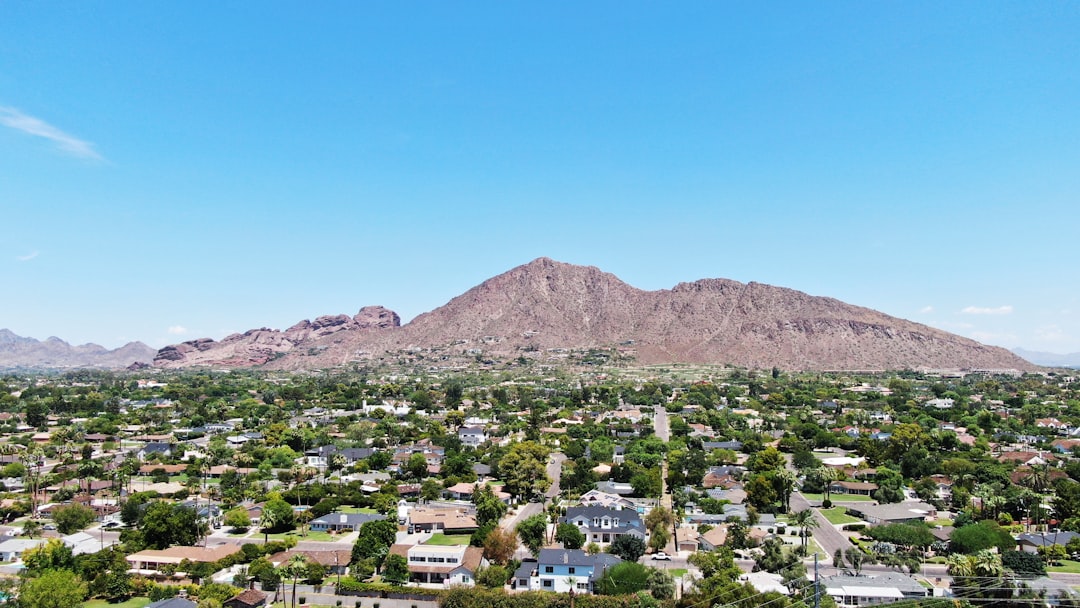Phoenix tackles spam calls through a multi-faceted approach combining public education, collaboration with telecoms, and legal protections. Local governments empower residents with knowledge and tools like Do Not Call lists, blocking apps, and reporting mechanisms, reducing unwanted call volumes. Educational campaigns target diverse demographics, utilizing social media and local news to teach effective prevention strategies. This holistic strategy, supported by state and federal laws, creates a safer, more informed community in Phoenix, effectively combating spam calls.
In Phoenix, as in many urban centers, spam calls pose a persistent nuisance. This article explores the multifaceted role of local government in combating this issue, from understanding the city’s unique spam call landscape to implementing effective strategies for reduction. We delve into legal frameworks and the crucial aspect of citizen education, highlighting community efforts to create a quieter, more livable Phoenix. Discover practical tips on how to stop spam calls in Phoenix through collaborative initiatives and informed choices.
Understanding Phoenix's Spam Call Landscape

Phoenix, like many cities across the globe, faces a persistent challenge from spam calls. These unwanted phone calls are not just an annoyance; they can be a significant burden on residents’ daily lives and productivity. Understanding the local spam call landscape is crucial in devising effective strategies to combat this issue. In Phoenix, the volume of spam calls varies across different neighborhoods, with certain areas experiencing higher rates than others. This uneven distribution highlights the need for tailored solutions that address the unique characteristics of each community.
Moreover, Phoenix’s diverse demographic and socioeconomic makeup means that traditional methods of blocking spam calls may not be equally effective across all populations. For instance, older residents or those less tech-savvy might require more accessible and user-friendly tools to manage spam calls. By examining these nuances, local government can collaborate with community organizations and telecom providers to implement targeted educational campaigns on how to stop spam calls in Phoenix. These initiatives should include practical tips, such as registering for Do Not Call lists, using advanced call blocking apps, and reporting suspicious calls to relevant authorities.
Legal Frameworks: Who's Responsible?

In the battle against spam calls, understanding the legal frameworks governing telecommunications is crucial. In Phoenix and across Arizona, the responsibility for regulating and addressing spam calls lies with both state and federal laws. The Telephone Consumer Protection Act (TCPA) at the federal level sets guidelines on how businesses can contact consumers, limiting unsolicited calls and texts without prior consent. At the state level, Arizona’s regulations further empower local governments to combat spamming by providing additional protections for residents.
Local governments in Phoenix play a vital role in educating citizens about their rights and options when it comes to stopping spam calls. They collaborate with consumer protection agencies and telecommunications providers to disseminate information on how to identify and report spam calls, as well as enforce existing laws. By working together, these entities aim to create a more informed and protected community, ensuring that residents of Phoenix can take action to curb unwanted and harassing phone calls.
Educating Citizens: A Community Effort

In the fight against spam calls, education is a powerful weapon. Local governments play a pivotal role in empowering citizens with the knowledge and tools needed to protect themselves from unwanted phone solicitations. Through community outreach programs, workshops, and informative campaigns, government bodies can teach residents about the various techniques used by spammers and how to identify suspicious calls.
The process of educating citizens is a collaborative effort that involves local authorities, schools, community centers, and non-profit organizations working together. By utilizing multiple channels like social media, local news, and face-to-face interactions, they can ensure that the message reaches a diverse range of people, especially those who may be more vulnerable to such scams. Equipping individuals with the knowledge on how to stop spam calls in Phoenix is a proactive step towards creating a safer and more informed community.
Effective Strategies for Call Reduction

Spam calls can be a significant nuisance, but local governments in Phoenix have implemented effective strategies to reduce them. One proven method is public education and awareness campaigns that teach residents about the tactics used by spam callers and how to recognize and report suspicious activity. These initiatives help foster a community-wide understanding of the issue, empowering folks with knowledge on how to stop spam calls Phoenix.
Additionally, local authorities collaborate with telecom service providers to implement robust call blocking technologies and filter systems. By leveraging advanced filtering algorithms and machine learning models, these measures can automatically identify and block unwanted calls before they reach a resident’s phone. Such collaborative efforts between government and private sector partners are instrumental in curbing spam calls and providing Phoenix residents with greater peace of mind.






